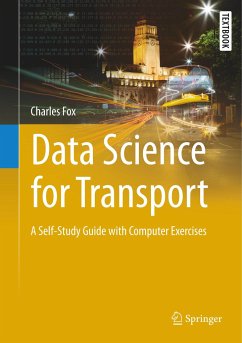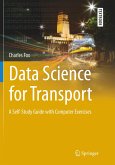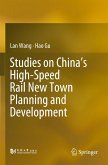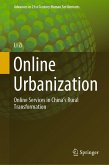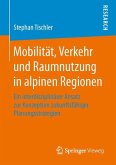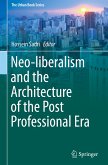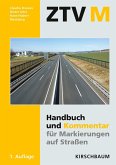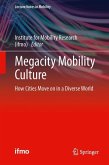The quantity, diversity and availability of transport data is increasing rapidly, requiring new skills in the management and interrogation of data and databases. Recent years have seen a new wave of 'big data', 'Data Science', and 'smart cities' changing the world, with the Harvard Business Review describing Data Science as the "sexiest job of the 21st century". Transportation professionals and researchers need to be able to use data and databases in order to establish quantitative, empirical facts, and to validate and challenge their mathematical models, whose axioms have traditionally often been assumed rather than rigorously tested against data. This book takes a highly practical approach to learning about Data Science tools and their application to investigating transport issues. The focus is principally on practical, professional work with real data and tools, including business and ethical issues.
"Transport modeling practice was developed in a data poor world, and many of our current techniques and skills are building on that sparsity. In a new data rich world, the required tools are different and the ethical questions around data and privacy are definitely different. I am not sure whether current professionals have these skills; and I am certainly not convinced that our current transport modeling tools will survive in a data rich environment. This is an exciting time to be a data scientist in the transport field. We are trying to get to grips with the opportunities that big data sources offer; but at the same time such data skills need to be fused with an understanding of transport, and of transport modeling. Those with these combined skills can be instrumental at providing better, faster, cheaper data for transport decision- making; and ultimately contribute to innovative, efficient, data driven modeling techniques of the future. It is not surprising that this course, this book, has been authored by the Institute for Transport Studies.To do this well, you need a blend of academic rigor and practical pragmatism. There are few educational or research establishments better equipped to do that than ITS Leeds".
- Tom van Vuren, Divisional Director, Mott MacDonald
"WSP is proud to be a thought leader in the world of transport modelling, planning and economics, and has a wide range of opportunities for people with skills in these areas. The evidence base and forecasts we deliver to effectively implement strategies and schemes are ever more data and technology focused a trend we have helped shape since the 1970's, but with particular disruption and opportunity in recent years. As a result of these trends, and to suitably skill the next generation of transport modellers, we asked the world-leading Institute for Transport Studies, to boost skills in these areas, and they have responded with a new MSc programme which you toocan now study via this book." - Leighton Cardwell, Technical Director, WSP.
"From processing and analysing large datasets, to automation of modelling tasks sometimes requiring different software packages to "talk" to each other, to data visualization, SYSTRA employs a range of techniques and tools to provide our clients with deeper insights and effective solutions. This book does an excellent job in giving you the skills to manage, interrogate and analyse databases, and develop powerful presentations. Another important publication from ITS Leeds." - Fitsum Teklu, Associate Director (Modelling & Appraisal) SYSTRA Ltd
"Urban planning has relied for decades on statistical and computational practices that have little to do with mainstream data science. Information is still often used as evidence on the impact of new infrastructure even w
"Transport modeling practice was developed in a data poor world, and many of our current techniques and skills are building on that sparsity. In a new data rich world, the required tools are different and the ethical questions around data and privacy are definitely different. I am not sure whether current professionals have these skills; and I am certainly not convinced that our current transport modeling tools will survive in a data rich environment. This is an exciting time to be a data scientist in the transport field. We are trying to get to grips with the opportunities that big data sources offer; but at the same time such data skills need to be fused with an understanding of transport, and of transport modeling. Those with these combined skills can be instrumental at providing better, faster, cheaper data for transport decision- making; and ultimately contribute to innovative, efficient, data driven modeling techniques of the future. It is not surprising that this course, this book, has been authored by the Institute for Transport Studies.To do this well, you need a blend of academic rigor and practical pragmatism. There are few educational or research establishments better equipped to do that than ITS Leeds".
- Tom van Vuren, Divisional Director, Mott MacDonald
"WSP is proud to be a thought leader in the world of transport modelling, planning and economics, and has a wide range of opportunities for people with skills in these areas. The evidence base and forecasts we deliver to effectively implement strategies and schemes are ever more data and technology focused a trend we have helped shape since the 1970's, but with particular disruption and opportunity in recent years. As a result of these trends, and to suitably skill the next generation of transport modellers, we asked the world-leading Institute for Transport Studies, to boost skills in these areas, and they have responded with a new MSc programme which you toocan now study via this book." - Leighton Cardwell, Technical Director, WSP.
"From processing and analysing large datasets, to automation of modelling tasks sometimes requiring different software packages to "talk" to each other, to data visualization, SYSTRA employs a range of techniques and tools to provide our clients with deeper insights and effective solutions. This book does an excellent job in giving you the skills to manage, interrogate and analyse databases, and develop powerful presentations. Another important publication from ITS Leeds." - Fitsum Teklu, Associate Director (Modelling & Appraisal) SYSTRA Ltd
"Urban planning has relied for decades on statistical and computational practices that have little to do with mainstream data science. Information is still often used as evidence on the impact of new infrastructure even w

